The pictures are powerful. They are reasons for hope. They show positive relations between Arabs and Jews all over the world, as friends, classmates, partners, and coworkers. Relationships in which trust and respect are a granted normalcy. After #Bringbackourgirls it is now the hashtag #JewsAndArabsRefuseToBeEnemies, which has gone viral on social networks. Arabs and Jews use Facebook and twitter to demonstrate for peace in Gaza and an end of the conflict.
The Israeli Jew, Abraham Gutman, and his Syrian-American Muslim classmate at Hunter College, Dania Darwisch, created #JewsAndArabsRefuseToBeEnemies, a slogan that has already been used in Hebrew for a couple of years. Under the same name they also initiated a Facebook group. In an interview to Voice of America Gutman and Darwish explain how they were disturbed by the hate they saw on social media channels after the escalation of the conflict in Gaza. Gutman said that with this online movement, they “wanted to create a space where people had the same experience we had with each other, that you can disagree, but you can have a debate, and try to be part of a solution in a productive way.“ Since its launch about three weeks ago, the Facebook group has already 55,903 likes (as of August 4).
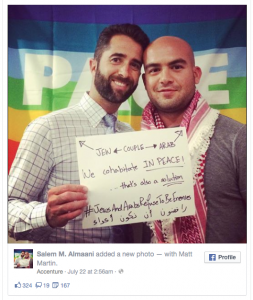
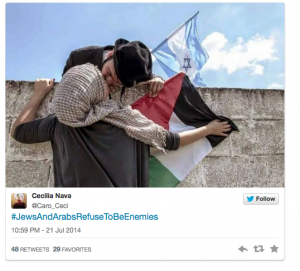
The participants of this online initiative refuse to be mere observers in the face of the war in Gaza, which has already cost more than 1300 lives in the three weeks since it started. They take action by sharing stories about interreligious and interethnic love and tolerance. These heart-warming pictures show people countering the common conflict narrative that mainly aims to de-humanize “the other”. It is great to see this political awareness increasing on an Internet platform, which is often overloaded with selfies and status updates on yesterday’s dinner.
But can hashtags influence politics? Are they a new form of political participation? The effect of such online movements is hard to measure, but it might be time for some optimism. Politicians also use the Internet; they read about recent trends in the world of social media, and will have most likely come across #JewsAndArabsRefuseToBeEnemies. As the picture of Michelle Obama holding a sign with #Bringbackourgirls illustrates, some hashtags even make it into the White House. The pictures of kissing Palestinians and Israelis or orthodox Jews demonstrating for a free Palestine have a power that is usually lacking on the level of diplomacy: emotions.
But while hashtagging in the hope for political change is a start, it is not enough. I encourage those social media users, who limit their political activity to uploading pictures and tagging their friends, to articulate their opinion also in their offline lives. Protest publicly, sign petitions, educate yourself and others, boycott, vote – this will bring us closer to making a change in the real, analogue world.
German Fulbright scholar Charlotte Carnehl is a fellow at the Center for Peace, Democracy, and Development and a second-year student in the International Relations Master’s program UMass Boston’s McCormack Graduate School of Policy and Global Studies.
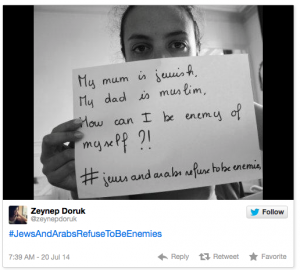
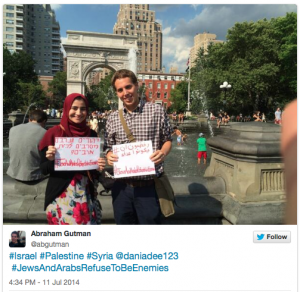
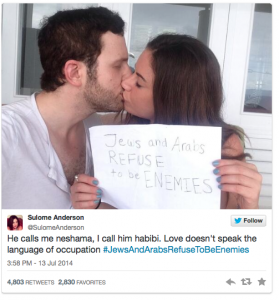
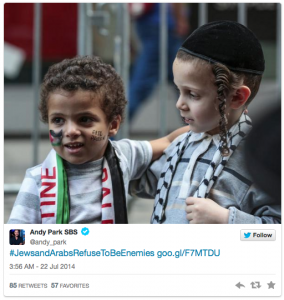
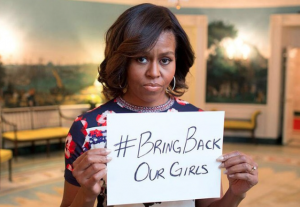

Leave a Reply